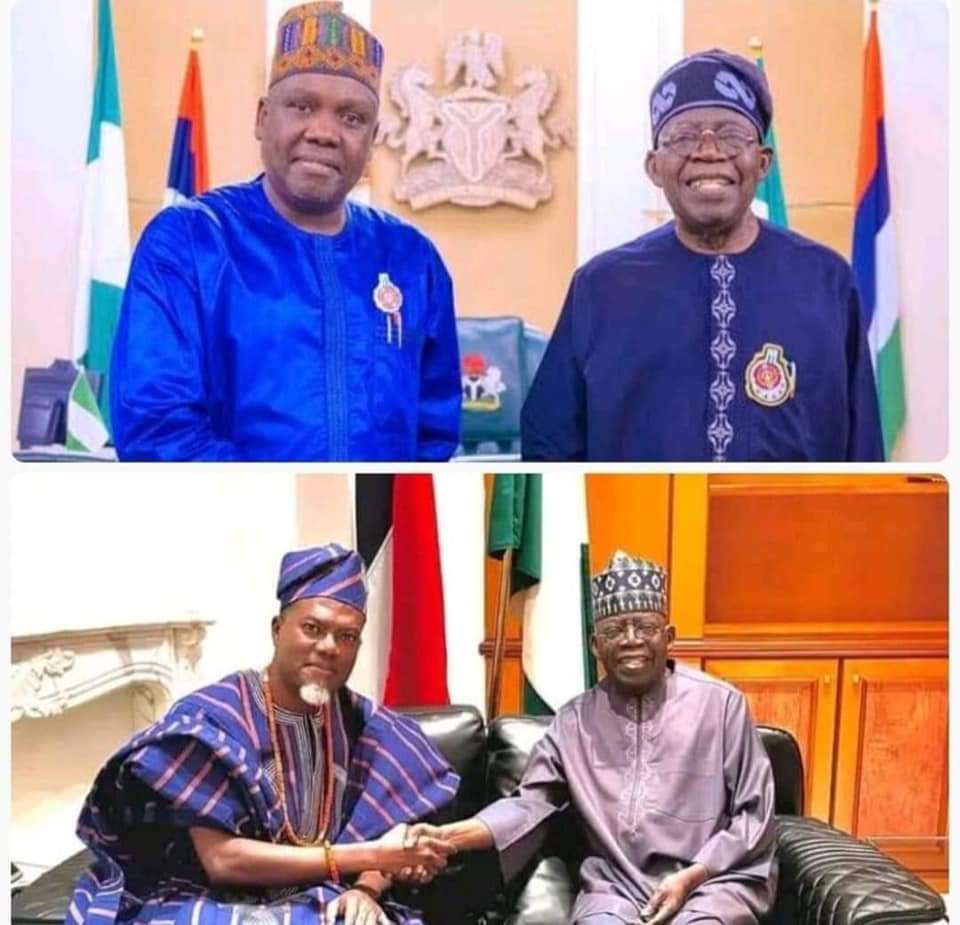The political system in Nigeria has become so distorted that it now seems to only value politicians who jump from one party to another. What used to be a space where loyalty and consistency mattered has turned into a game of opportunism, where political figures switch sides depending on the prevailing winds of power. This unfortunate trend not only undermines the integrity of the political process but also sends a dangerous message—that in politics, principles and convictions mean little compared to self-serving gains.
Take Reno Omokri and Bwala Daniel as prime examples. Just a few months ago, both were vocal critics of Bola Tinubu. They called him out repeatedly, even questioning his fitness for office. They poured praises on Atiku Abubakar, portraying him as the better choice for Nigeria, singing his praises to the heavens. And yet, fast forward a few months, these same men are now openly lobbying to be part of Tinubu’s government. They’re now romancing the very man they labeled a “drug lord,” with no regard for the glaring contradictions in their stance. The shamelessness of it all is truly baffling.
What’s even more disturbing is how society turns a blind eye to this kind of behavior. No one seems to find anything wrong with politicians who, in a matter of months, can flip their allegiances and embrace the very individuals they once tore down. Instead of calling them out for their lack of integrity, the public often chooses to mock those of us who stay loyal to one party, who choose to be consistent in our beliefs.
ALSO READ: Fuel Price Conspiracy: Is Dangote still the Messiah?
As someone who has chosen to remain dedicated and unwavering in my political stance, I—Rita Ebiuwa—have seen firsthand how consistency is no longer valued. Instead, I’m made fun of for not jumping ship at every election cycle. The political elite and their followers prefer those who flip-flop between parties, never mind that their ideologies change as often as the seasons. It’s sad that political opportunists are celebrated, while those of us who choose to stand firm in our convictions are mocked and ridiculed.
The problem is that when politicians jump from one party to another, they drag the entire political system down with them. It creates a situation where no one is held accountable, where promises are forgotten, and where voters lose faith in the system. How can we expect progress when those who are supposed to lead us can’t even stick to their own principles? How can we build a better future when political loyalty is treated like a bargaining chip to be traded for personal gain?
The political class needs to realize that switching parties is not a sign of strength, but a sign of weakness—a failure to stand by one’s beliefs when it matters most. Until we start valuing consistency over opportunism, the political system will remain a mess. And unfortunately, the people who suffer the most are the ones who put their faith in these politicians, only to be betrayed time and time again.
So while Omokri and Bwala may have made their moves, the question we should be asking is this: at what cost? Is it worth losing one’s credibility for a shot at political power? And why should those of us who remain true to our values be the ones ridiculed for not playing along with this broken system?
In the end, the political culture we create is the one we tolerate—and right now, we are tolerating a system that rewards betrayal and inconsistency over integrity and loyalty.


 Entertainment5 days ago
Entertainment5 days ago
 Comments and Issues1 week ago
Comments and Issues1 week ago
 Comments and Issues1 week ago
Comments and Issues1 week ago
 Health7 days ago
Health7 days ago
 Comments and Issues1 week ago
Comments and Issues1 week ago
 Health3 days ago
Health3 days ago
 Football7 days ago
Football7 days ago
 Football7 days ago
Football7 days ago
